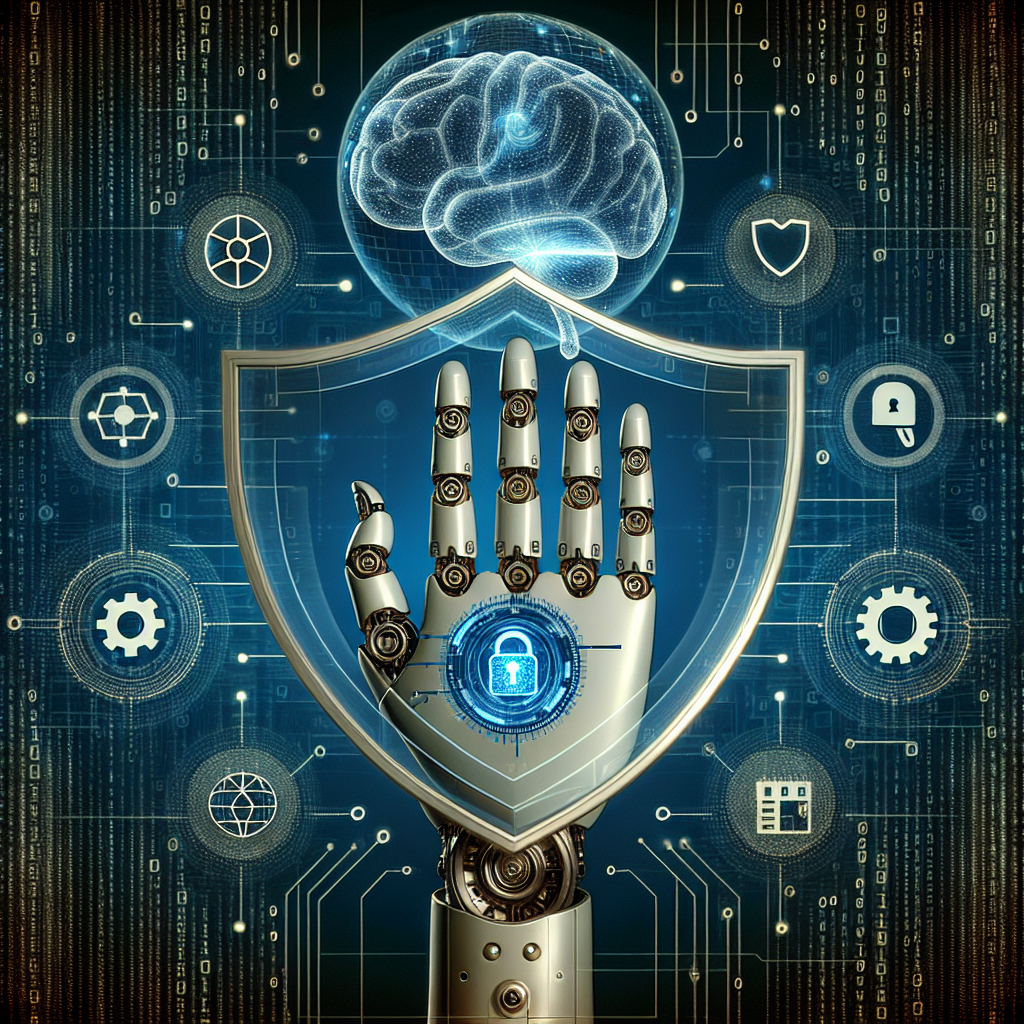Artificial Intelligence (AI) has become an integral part of our daily lives, from the personal assistants on our smartphones to the algorithms that dictate what we see on social media. While AI has the potential to revolutionize industries and improve efficiency, it also poses significant challenges when it comes to protecting privacy. Regulating AI to safeguard personal data is crucial in order to prevent misuse and abuse of this powerful technology.
One of the main challenges in regulating AI to protect privacy is the sheer complexity of the technology itself. AI systems are often opaque and difficult to understand, making it hard to regulate how they collect, use, and store personal data. Additionally, AI systems can adapt and evolve over time, making it difficult to predict how they will behave in the future. This presents a major challenge for regulators, as they must balance the need to protect privacy with the need to allow for innovation and advancement in AI technology.
Another challenge in regulating AI to protect privacy is the lack of clear guidelines and standards. Unlike other industries that have well-established regulations, the field of AI is relatively new and rapidly evolving. This makes it difficult for regulators to keep up with the latest developments and ensure that privacy protections are adequate. Additionally, the global nature of AI means that regulations in one country may not be sufficient to protect data across borders, further complicating the regulatory landscape.
One of the biggest concerns when it comes to AI and privacy is the potential for bias and discrimination. AI systems are trained on vast amounts of data, which can contain biases that are then reflected in the system’s decisions and recommendations. This can result in discriminatory outcomes, such as biased hiring practices or unfair treatment in the criminal justice system. Regulators must address these issues and ensure that AI systems are fair and unbiased in their decision-making processes.
Another challenge in regulating AI to protect privacy is the issue of data security. AI systems rely on vast amounts of data to function, and this data can be vulnerable to breaches and cyberattacks. In the wrong hands, personal data collected by AI systems can be used for malicious purposes, such as identity theft or fraud. Regulators must ensure that AI systems have robust security measures in place to protect data from unauthorized access and misuse.
In order to address these challenges and protect privacy in the age of AI, regulators must take a proactive approach to regulation. This includes developing clear guidelines and standards for the use of AI systems, as well as implementing robust oversight and enforcement mechanisms to ensure compliance. Regulators must also work closely with industry stakeholders to develop best practices and ensure that privacy protections are built into AI systems from the outset.
Despite these challenges, there are steps that individuals can take to protect their privacy in the age of AI. This includes being mindful of the data they share online and being cautious about the permissions they grant to AI systems. Individuals can also advocate for stronger privacy protections and hold companies and regulators accountable for safeguarding their personal data.
In conclusion, regulating AI to protect privacy is a complex and ongoing challenge that requires collaboration between regulators, industry stakeholders, and individuals. By addressing issues such as bias, data security, and transparency, regulators can ensure that AI systems are used responsibly and ethically. Ultimately, protecting privacy in the age of AI is essential to ensuring that this powerful technology benefits society as a whole.
FAQs:
Q: What are some examples of AI systems that pose privacy risks?
A: Examples of AI systems that pose privacy risks include facial recognition technology, predictive policing algorithms, and personalized advertising platforms. These systems can collect vast amounts of personal data and use it to make decisions that can impact individuals’ lives in significant ways.
Q: How can individuals protect their privacy when using AI systems?
A: Individuals can protect their privacy when using AI systems by being mindful of the data they share online, being cautious about the permissions they grant to AI systems, and advocating for stronger privacy protections. It is also important to read privacy policies and terms of service carefully before using AI systems.
Q: What are some best practices for regulators to protect privacy in the age of AI?
A: Some best practices for regulators to protect privacy in the age of AI include developing clear guidelines and standards for the use of AI systems, implementing robust oversight and enforcement mechanisms, and working closely with industry stakeholders to develop best practices. Regulators should also prioritize issues such as bias, data security, and transparency in their regulatory efforts.

